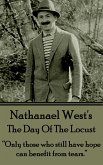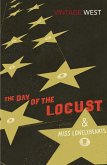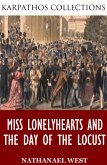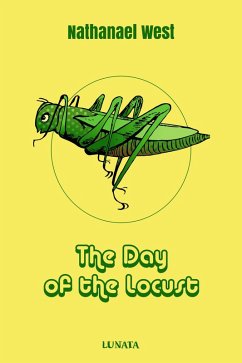Nathanael West, originally named Nathan Weinstein, (1903 - 1940), was an American writer, primarily known for his satirical novels of the 1930s. His best-known works are "The Day of the Locust" and "Miss Lonelyhearts." Published in 1939, "The Day of the Locust" is a novel about the mythologies of Hollywood and the "American Dream." Enigmatic and disconcerting, this work narrates the experience of a set designer in a semi-hallucinatory and artificial Los Angeles (itself resembling a movie set), inhabited by a parade of eccentric characters and a crowd bewitched by the magic of cinema and promises of abundance and happiness. Both apocalyptic and moving, violent and absurdly comic, "The Day of the Locust" is, in the opinion of many, the best novel ever written about Hollywood.
Dieser Download kann aus rechtlichen Gründen nur mit Rechnungsadresse in A, B, BG, CY, CZ, D, DK, EW, E, FIN, F, GR, H, IRL, I, LT, L, LR, M, NL, PL, P, R, S, SLO, SK ausgeliefert werden.









